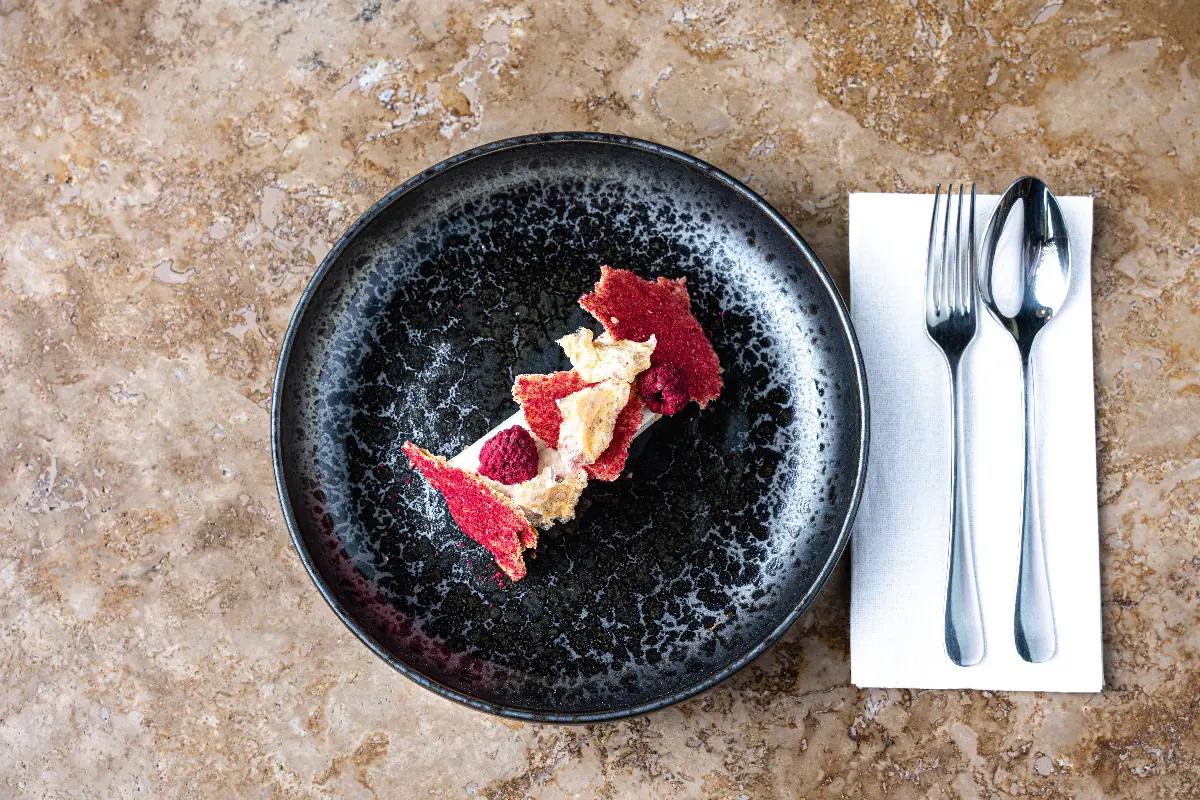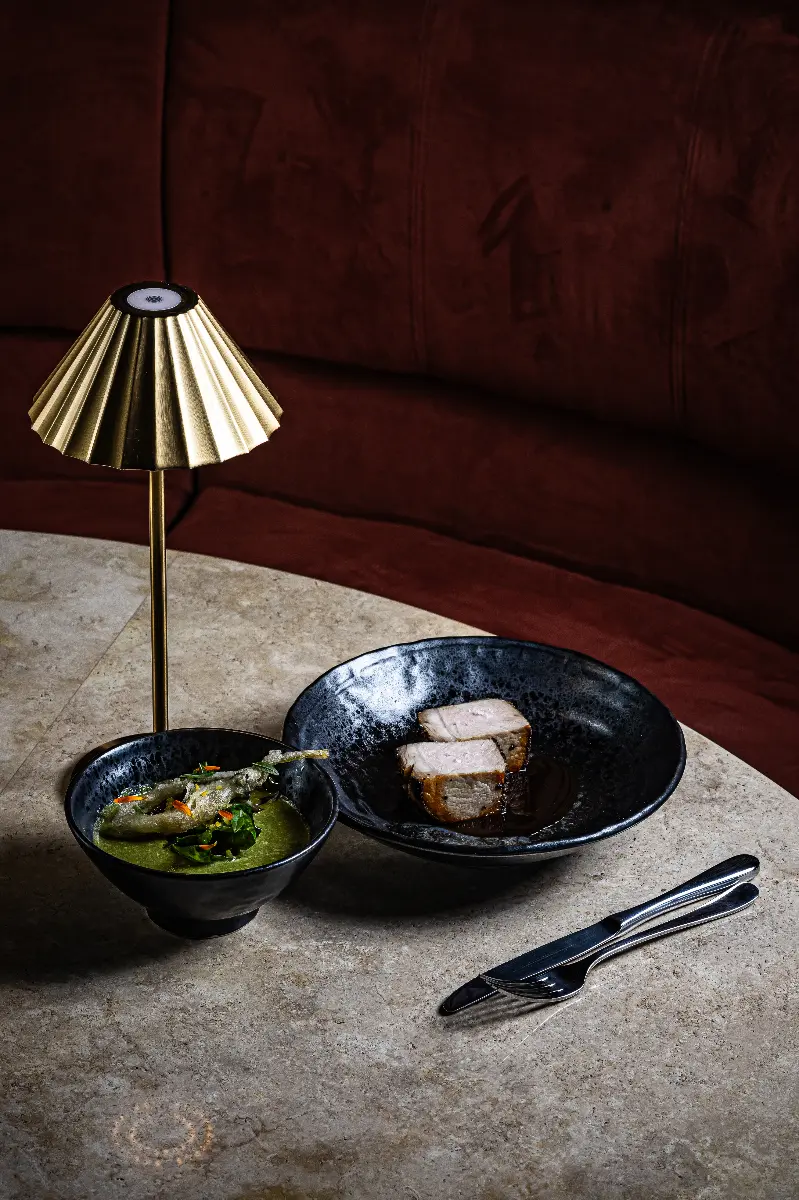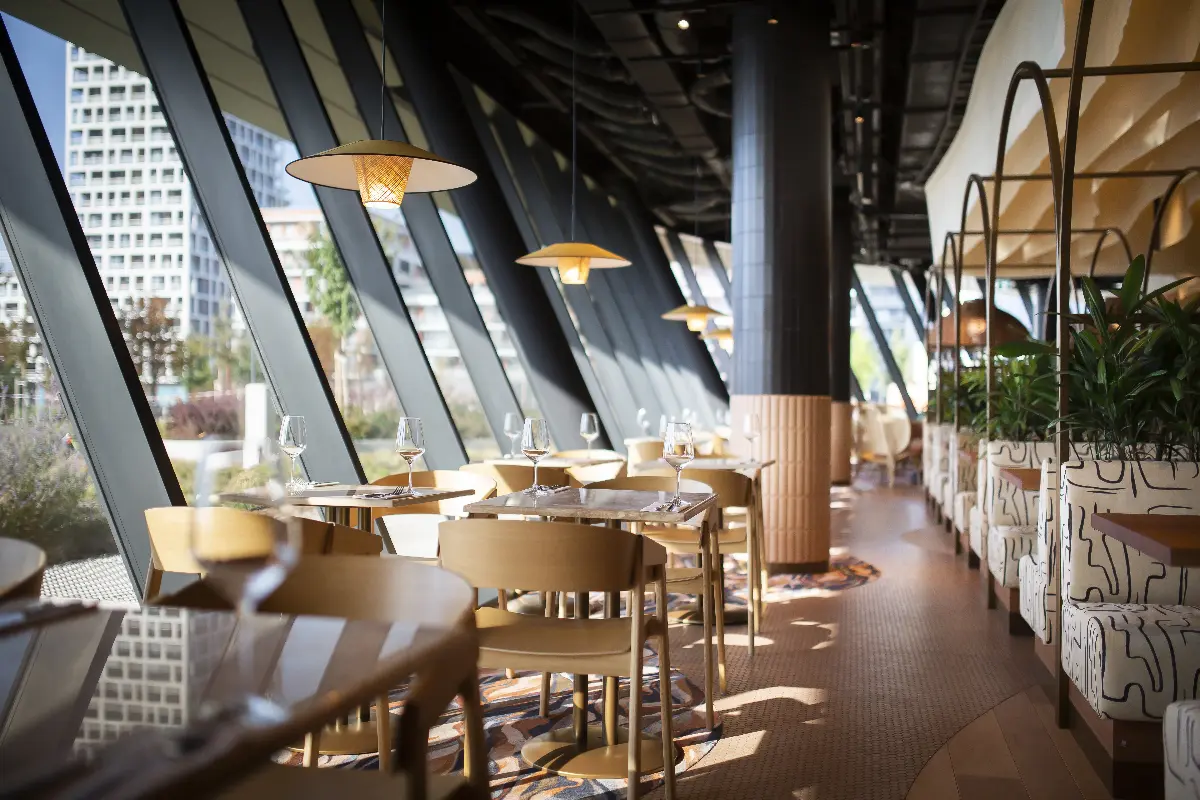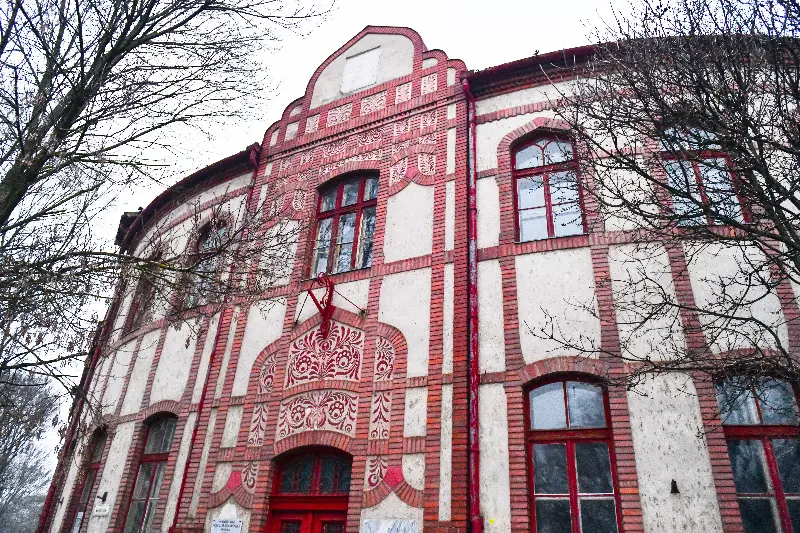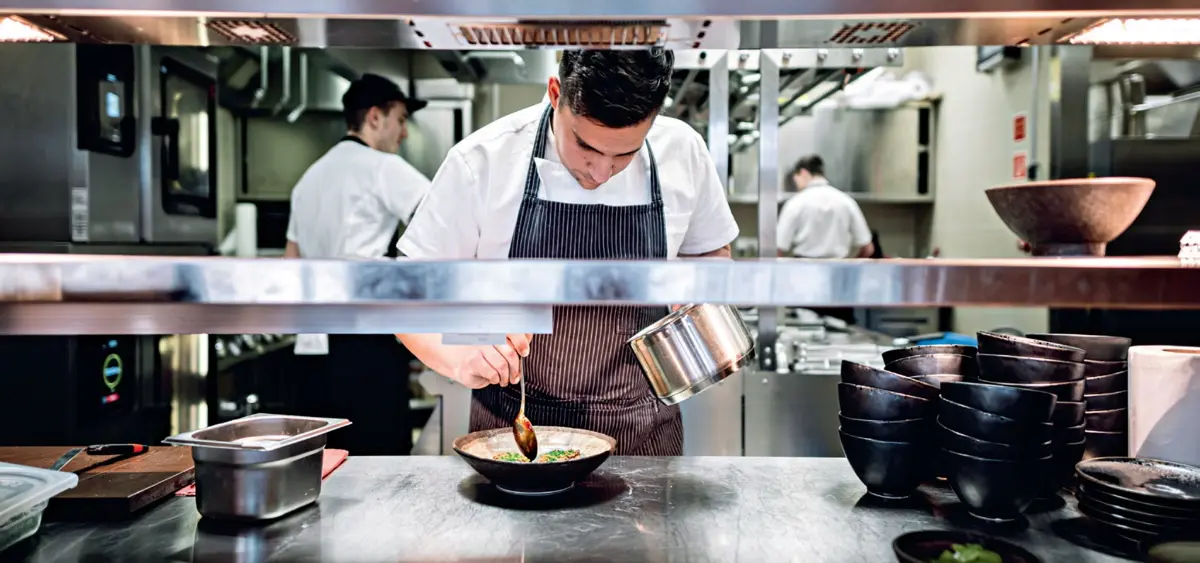
Helyszín címkék:
I want to show traditional Hungarian dishes in a refined and worldly way - interview with Dániel Bíró
Francisck Réka Alíz
You worked in a 2 Michelin-starred restaurant, you have extensive experience in fine dining, you studied in Switzerland. You could have anchored anywhere abroad. What brought you home, and why did you vote for Hungarian cuisine?
The Swiss Business & Hotel Management School (BHMS), one of the world's best catering schools, is my alma mater, but my unconditional passion for gastronomy was instilled in me by my father. The experiences abroad in the years after Lucerne were absolutely necessary to become the person who I am today: I needed to get out of the shell I grew up in. At home, I think it would have been like this: I am the son of Lajos Bíró, I work in the profession, what could go wrong with me?
I had to achieve success abroad myself, and there were times when my knife almost broke. I worked six days a week, 16-18 hours a day, in Konstantin Filippou's two-Michelin-star restaurant in Vienna, but I wilted not because of this, but because of the "venomous" atmosphere. At The Arts Club in London, next to Jean-Luc Mongodin, I saw that it was possible to do this while enjoying it: there I became a real team player. In those times, my father and I saw each other every 2-3 months, but there were times when I asked his opinion every day, and he told me about it. He also told me when I came home, took over the KisBíró (Vendéglő a KisBíróhoz - ed.) and I was out of control, that is, I got above myself - well, then he put me in my place. This was also necessary for me to become the person who I am today - and this person found himself here, at Zazie Bistro&Bar. This relaxed bistro style is closest to me. I love Asian cuisine, but what really moves me is when I can serve the domestic flavours in such a way that those who taste it raise their eyebrows, because we serve familiar dishes, but still a little different, a little more worldly, more refined way. Of course, it might just get a touch of the Far East, from a little bergamot or pecans - although I do not use these for traditional Hungarian dishes like goulash or Hortobágy pancakes.
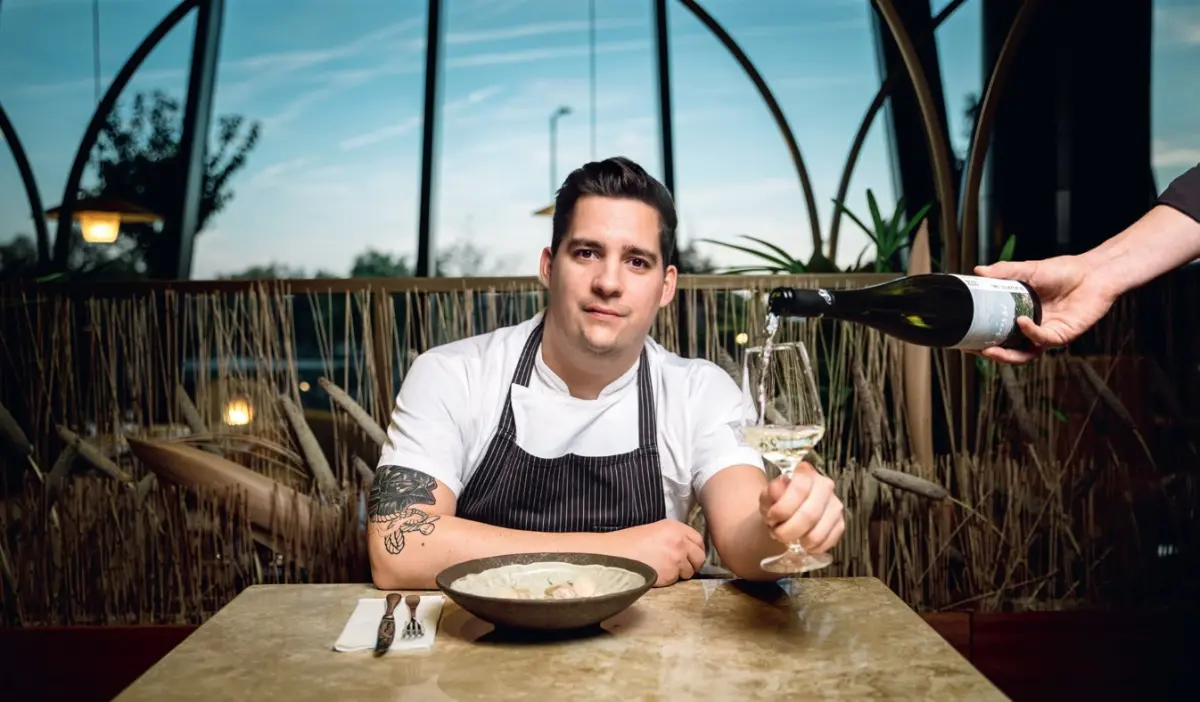
These two "signature dishes" have been on the menu since the beginning, haven't they?
Yes, "My father's goulash soup with kápia refresher" is one of those dishes that I do not want to take off the menu, but the public will not let me either. In terms of appearance, taste and texture, this is a real goulash soup, the guest does not have to think about what he sees on the plate - but there is still a gastronomic plus in it from the kápia.
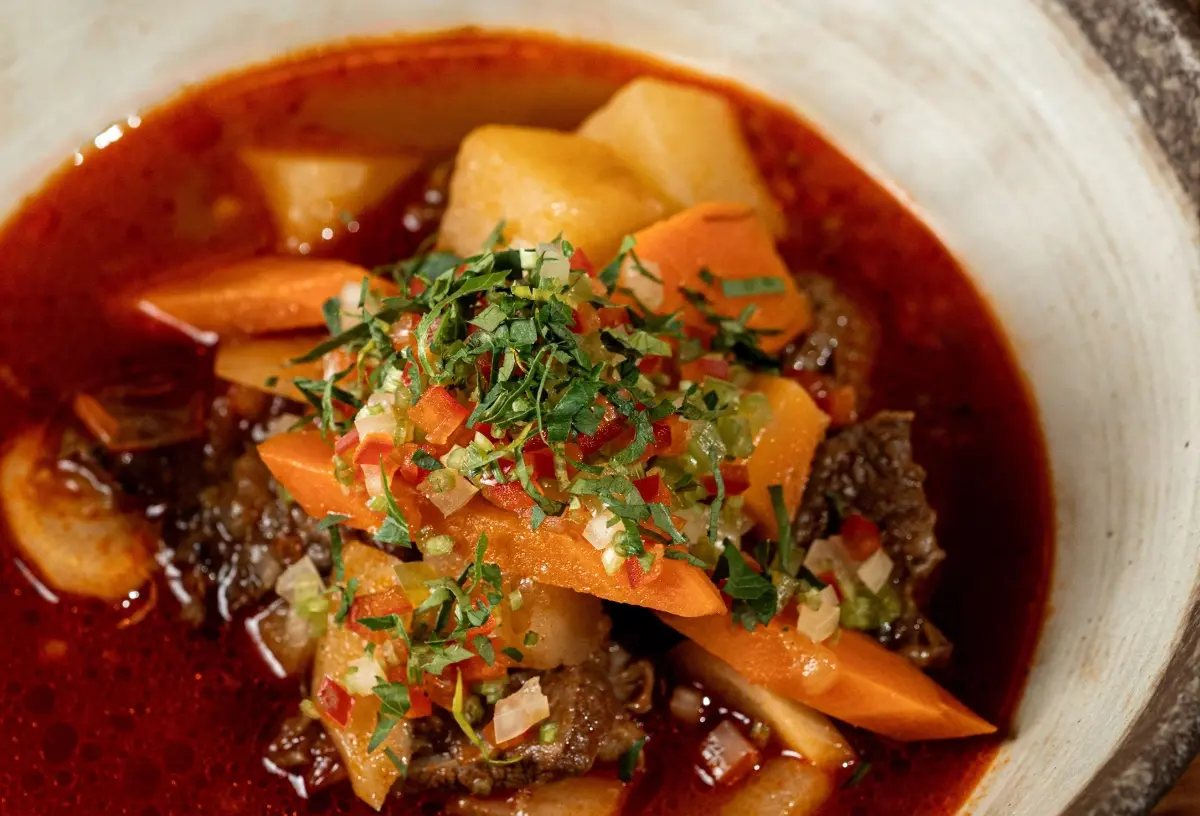
I make Hortobágy pancakes according to the basic recipe, I start a red stew with duck fat from chicken legs. But a stew is also made from chicken breast separately, for this I dice the meat, shock it (I cool it down very quickly, like freezing it - ed.), and I fry the chicken skin as crackers and use it ground up - the served pancake is topped with refreshing Maldon salt.
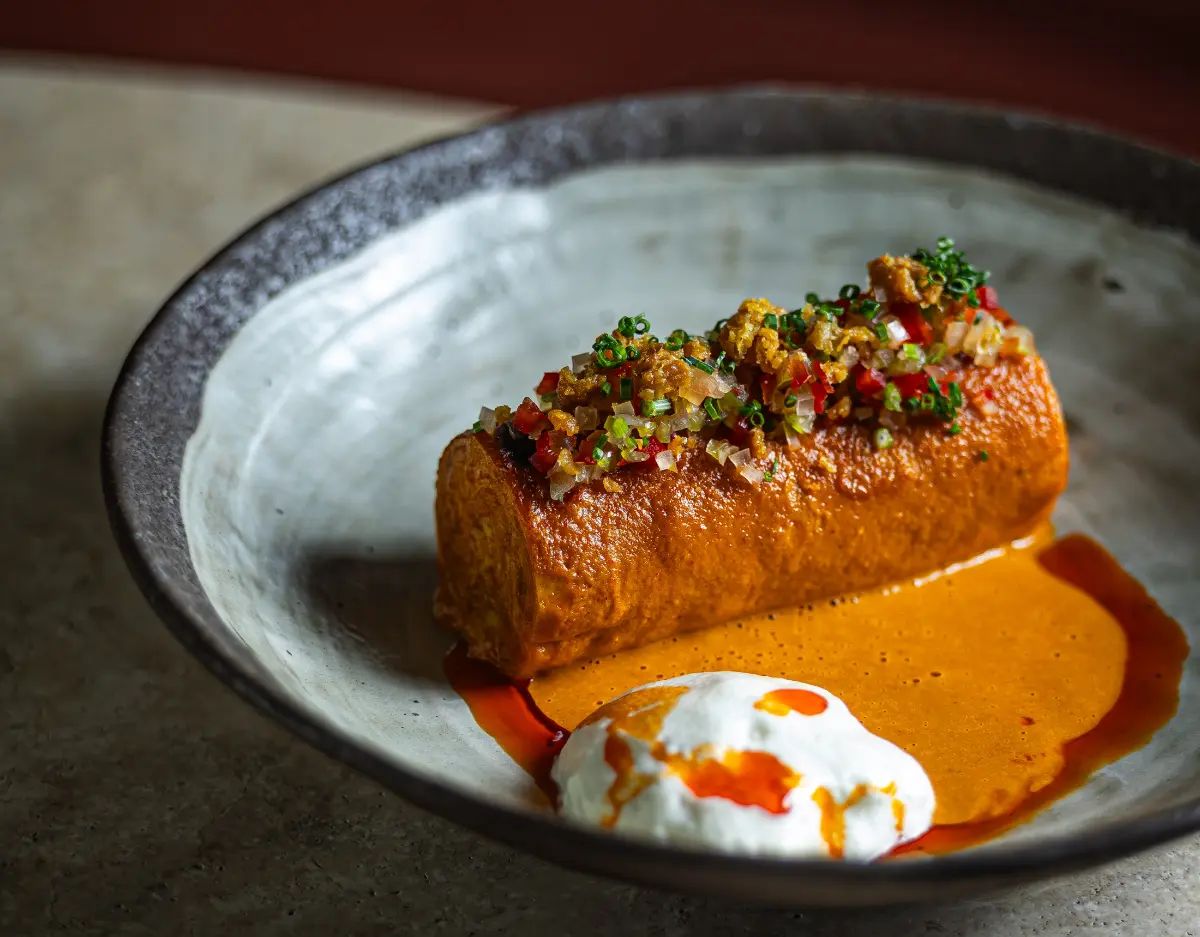
And what is "Onion on the cube"?
It is my other big favourite that I have experimented with a lot. Onions are a great treasure in Hungarian cuisine, it would be difficult to cook Hungarian food without them. There are many varieties, and it is not clear to many people what kind of onion is the best for a certain dish. I love to get more out of a raw material, to show how complex it is. In this dish, the onion shows 7-8 different faces: a consommé is made from Welsh onion, that has been burnt, then an onion jus with cognac, and pickled fermented Hungarian onions and fried onions are also part of the story. Served with polenta cooked with lime zest and pear salad, it is healthy and, not incidentally, it is vegan too. I pay special attention to the fact that our dishes are made from nutritious, fresh and seasonal ingredients. We source everything we can from within our borders. For example, the fresh catfish comes from Tiszakécske, from the fish port, which we fry in brown butter infused with thyme and dill (soaked - ed.) - and now we serve it with cabbage noodles. We try to show how many faces Hungarian cuisine has. Our guests also loved the sorrel stew: I make it from Berceli sorrel, we add Mangalica chops and roasted Swiss chard, it is divine.
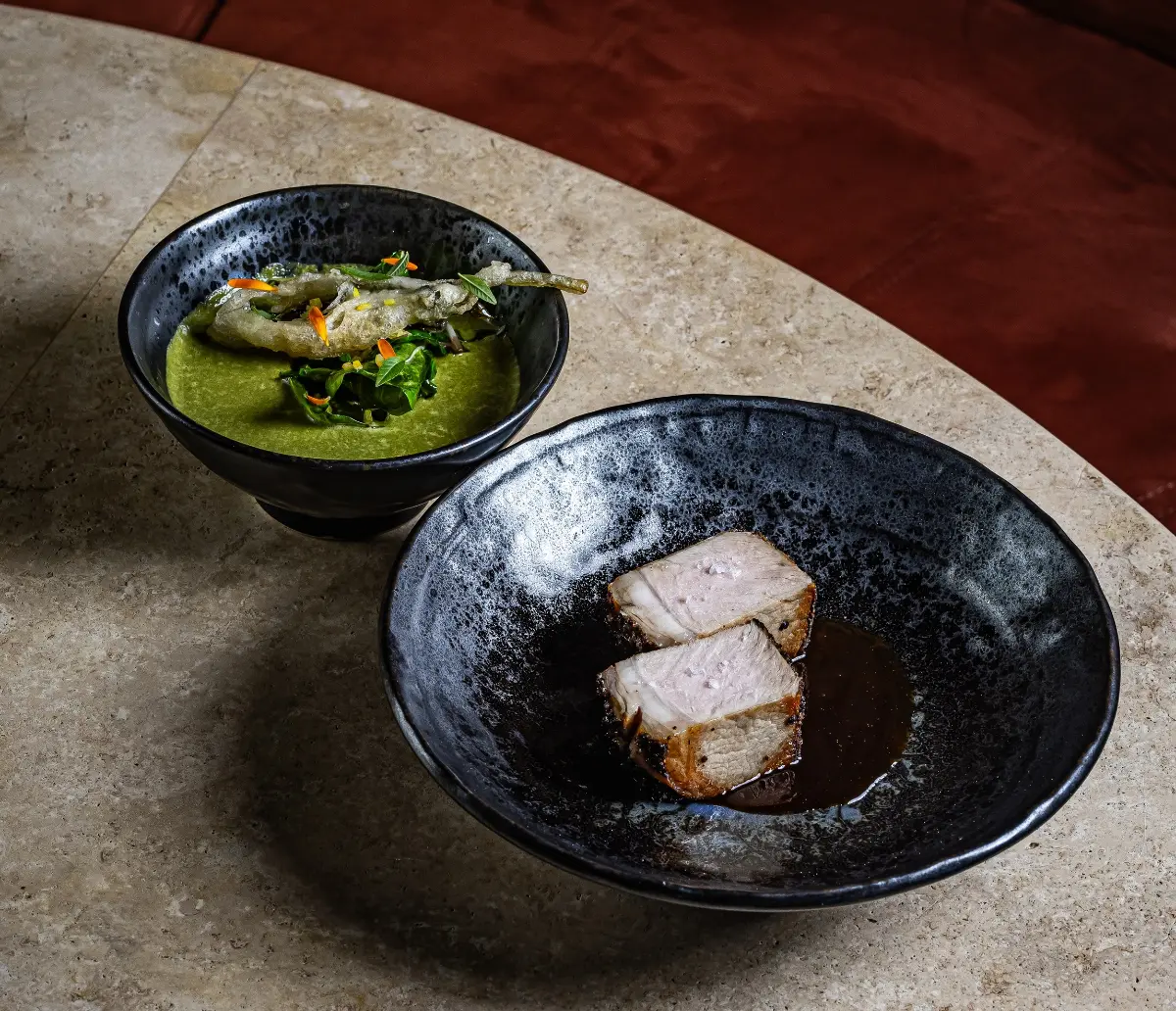
Your father once said he could learn good techniques from you.
There has already been an example of it. It is commendable that he is constantly educating himself, and it is reflected in his food that he is a well-travelled person. He is constantly experimenting - I note that he also successfully transferred this to me. There is, for example, Buja Disznó(k), in addition to the locations in Budapest, it has also been in Szigliget, in Várudvar, for a couple of years: it was a brilliant move by my father to come up with this brand, half the country knows his large, high-quality Schnitzel. Well, he worked on the breadcrumbs for the coat for months. It had to be perfect, but in such a way that no matter where, no matter what time of year, no matter who makes it, it should be crispy, neither too thick, nor too thin, nor soggy. By the way, Schnitzel is also on our menu, it is also included in the breakfast offer, in the form of a sandwich, in a truffle-mayonnaise ciabatta and Lyon onion combo. Again, this is Dad's fingerprint, he used to make sandwiches with extras for me (too). It is a good and filling food to start the day, but it also makes a good lunch - it absolutely fits in with Zazie.
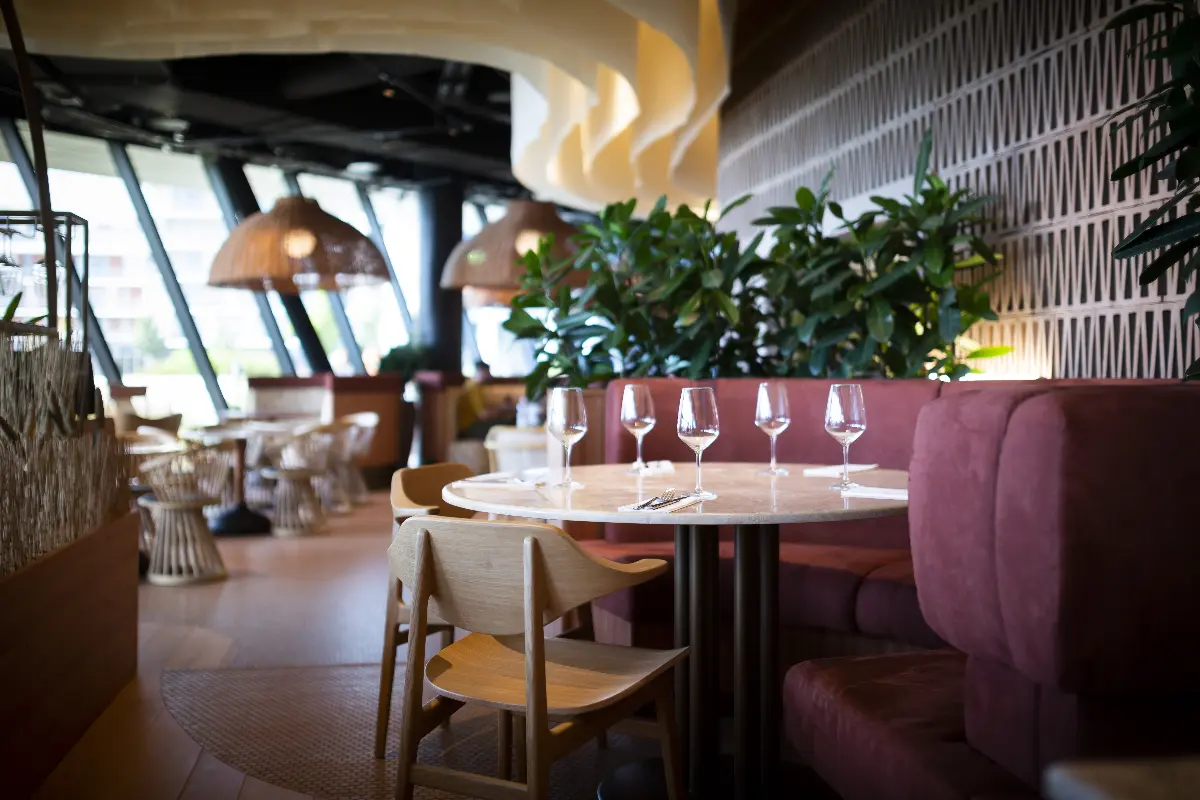
Here, on the ground floor of the MOL Campus, the biggest challenge is that we have to be exciting all day, since we are open from morning to evening: you can come for brunch, business lunch, after-work cocktails and à la carte dinner. 2,800 people work in the house, and about 12,000 in the houses around us - but to get them to come to us and keep the restaurant full takes a lot of energy.
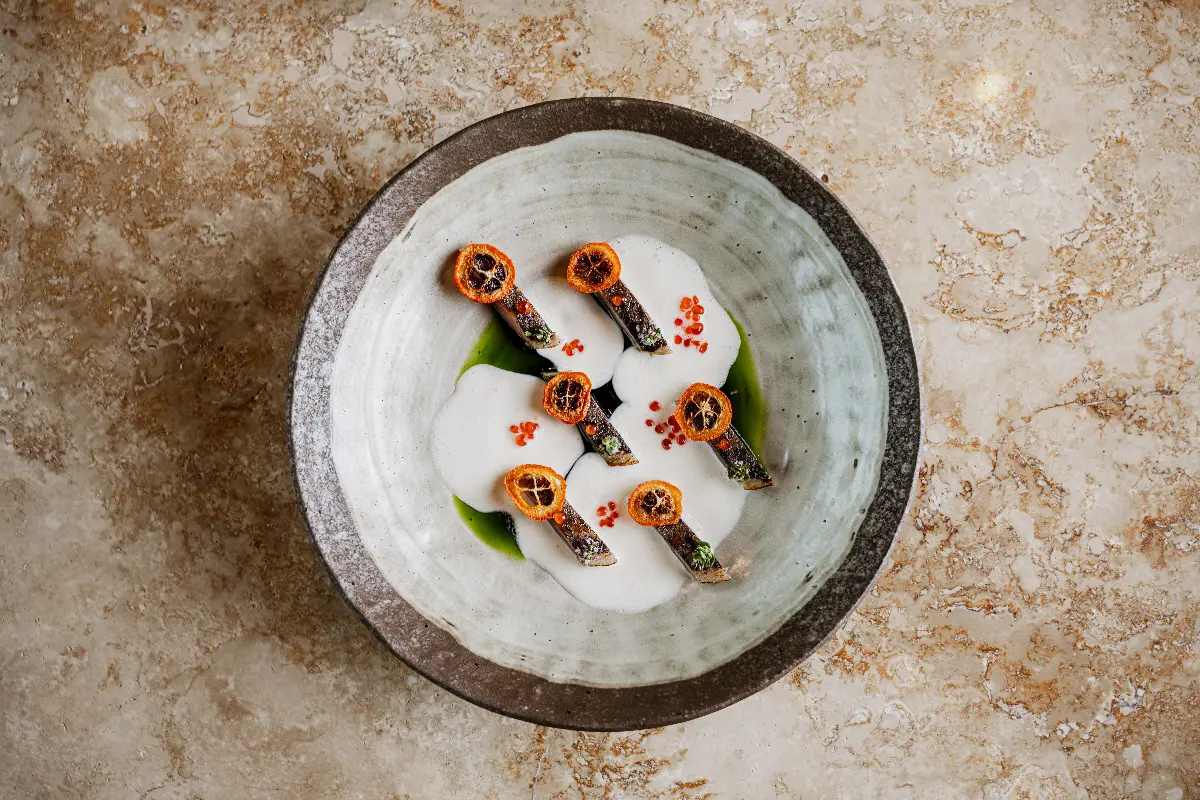
Where do you get inspiration from, what inspires you?
Inspiration can and does come at any time. But perhaps most of all when I am sitting on the terrace at home and the atmosphere of world peace settles down on me. It is enough to see a special shape or colour. But it is interesting that the ideas for big meaty meals hit me when I am feeling down. I am not that good at desserts, that is a different world, but here we have Gergő Nagy. The team also inspires me. We are a well-established team, I have already worked with many of them at KisBíró, there was no question that I would invite them here. The fact that I was given a free hand in developing the gastronomic concept also gives me wings - not all chefs are given this.
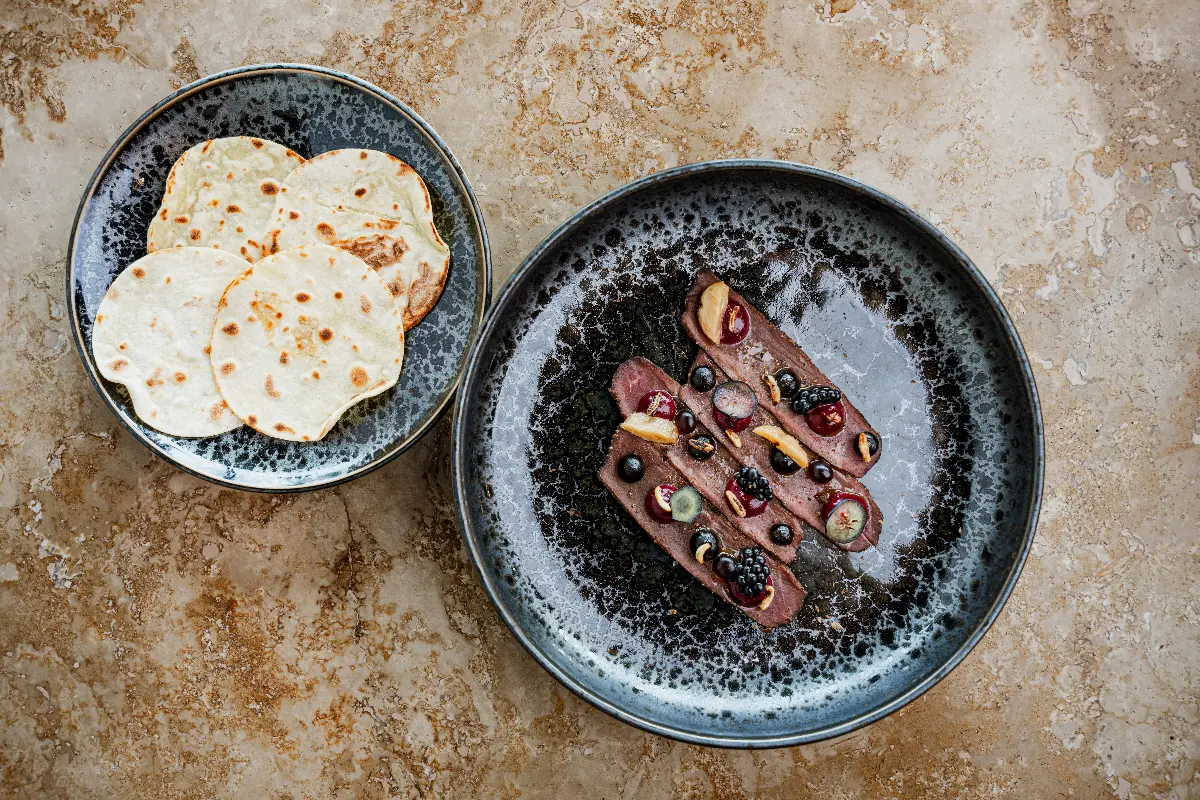
If you could describe your relationship with your father in a few words, and what you think of him and yourself, what would you say?
Hedonism, chef legend, fanaticism for the profession - these are the first things that come to my mind about him. To me, he really is a god, whether he is in western boots on his Harley or in his underpants in the armchair. Our relationship has always been strong. He is a sensational man, father, chef, mentor who is able to consistently set an example, telling us that hard work always pays off. For myself: determination, perseverance, competitive spirit - by the way, the fact that I did kung fu competitively for 16 years from the age of four contributes greatly to this. Martial arts do not just teach you how to punch. The practice of Eastern martial arts is also excellent for stress management, and I still draw inspiration from the philosophy behind it.

